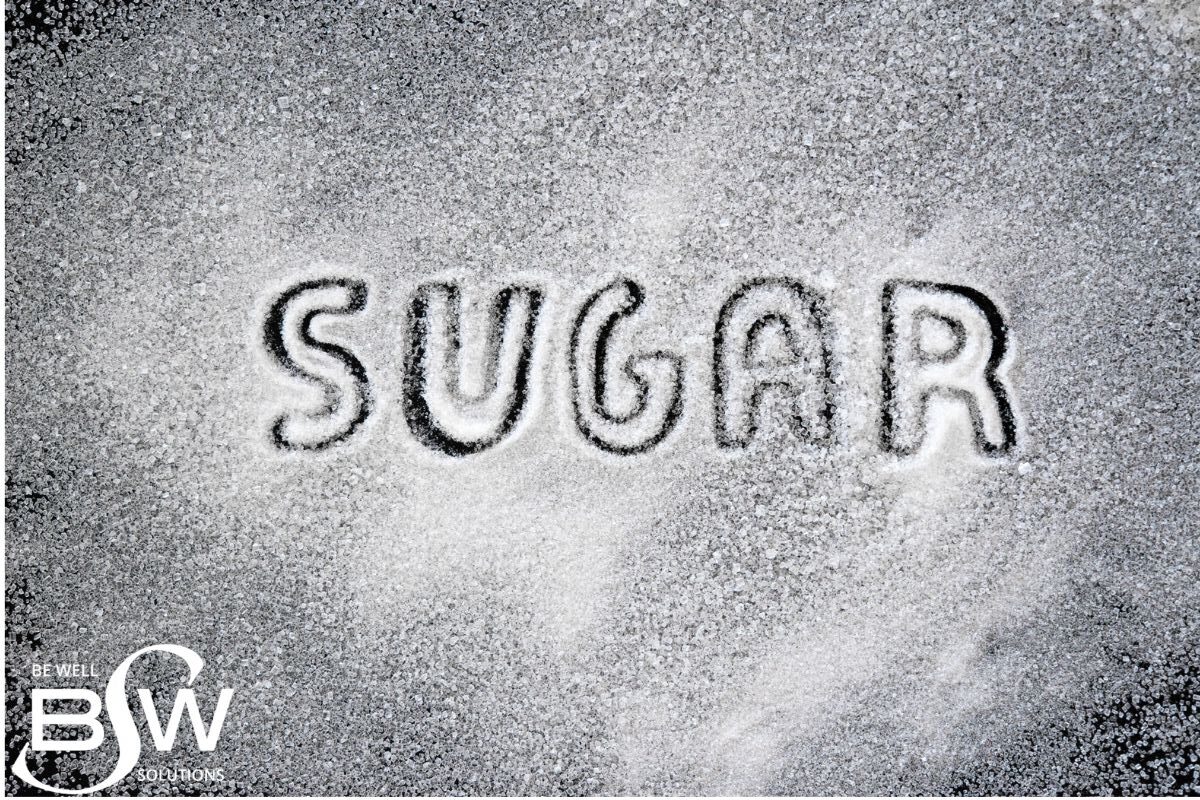
You might be surprised to hear that most Americans (including teenagers and children) consume about 17 teaspoons of added sugar each day. Too much added sugar can lead to increased health risks including heart disease, type 2 diabetes, and obesity. Added sugar contains calories, but no additional nutrition. With the lack of vitamins and minerals it’s important to limit your intake of added sugar. Let’s take a closer to look to discover how you can reduce your intake of added sugar.

Different names for added sugar
Added sugar comes in many forms including, but not limited to, maple syrup, honey, brown sugar, molasses, high fructose corn syrup, sucrose, coconut sugar, evaporated cane syrup, agave nectar, maltose, dextrose, and malt syrup. Regardless of which type of added sugar you use, you want to limit your intake.
Finding added sugar in foods
Added sugar is included in many foods such as cereals, beverages, snack foods, desserts, flavored milks, and yogurts.
How can I tell how much added sugar is in food?
The “Nutrition Facts” label will include the grams of added sugar. You can also look at the ingredients list. Ingredients will be listed from highest to lowest. In other words, the most abundant ingredient will be listed first.
How much added sugar is recommended each day?
The American Heart Association recommends the following:
- Men: 9 teaspoons (36g each day)
- Women: 6 teaspoons (24g per day)
Evaluating Added Sugar in Food
Let’s use yogurt as an example. Plain yogurt has natural sugar from milk (natural sugar from milk and fruit are the healthy type of sugar). Flavored yogurt will have both natural and added sugar (each brand will have varying amounts of added sugar).

Chobani Flip Cookie Dough
Nutrition: 170 calories, 5g fat, 8g protein & 16g added sugar
Evaluation: Occasional choice due to added sugar content (16g/4= 4 teaspoons of added sugar).
 Chobani Less Sugar Madagascar Vanilla Yogurt
Chobani Less Sugar Madagascar Vanilla Yogurt
Nutrition: 120 calories, 3g fat, 12g protein & 5g added sugar
Evaluation: Everyday choice. Lower in added sugar and contains 12g of protein. Images and nutrition facts from www. https://www.chobani.com/
Food label from www.fda.gov
Written by BWS Dietitian-Melissa Morningstar Vajas RD, LD
Continue reading March 2023 Newsletter: Practicing Mindfulness
